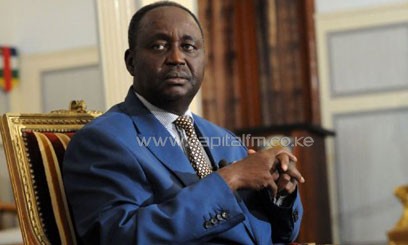Congo Republic President Denis Sassou Nguesso is serving as mediator for the Libreville talks.
Bozize will be present in the city but is not expected to attend the talks, with the government delegation being headed by Higher Education Minister Jean Willybero-Sako.
Willybero-Sako has voiced confidence that concessions that Bozize has offered so far – he has proposed a national unity government and said he will not try to seek an unconstitutional third term – will go a long way toward resolving the conflict.
The concessions “cleared a lot of obstacles”, Willybero-Sako told AFP on Sunday. “That showed a certain willingness to go forward, to take into account everyone’s concerns.”
Territorial Administration Minister Josue Binoua has said the government will also propose “army reform, an economic stimulus plan and the implementation of a new electoral code” at the talks.
Bozize, a former army general, came to power in a coup in 2003 and has been voted back into office twice, in 2005 and 2011.
He has been accused of plotting to modify the constitution to allow him to seek a third term in 2016.
Bozize made a quick trip Monday to Brazzaville to meet with mediator Sassou Nguesso.
The Central African leader has claimed the rebel movement was triggered by “elements coming from outside”.
Seleka, an alliance of three rebel movements, launched its assault on December 10 in the north of the Central African Republic, a mineral-rich country of five million people that is notorious for coups.
The insurgents are now in striking distance of the capital Bangui, near Sibut, 160 kilometres (100 miles) to the north.
At first, the rebels were simply calling on the Bangui government to respect the terms of peace accords signed in 2007 and 2011. As their position strengthened, however, they began calling for Bozize to step down.
Ahead of the talks, CEEAC has sent more troops to strengthen FOMAC, its multinational intervention force in the country.
They are deployed as a buffer force at Damara, 75 kilometres north of the capital Bangui.
Northern neighbour Chad has contributed 400 soldiers to protect Damara, while South Africa said on Tuesday that it had so far dispatched 200 troops to the country.












































